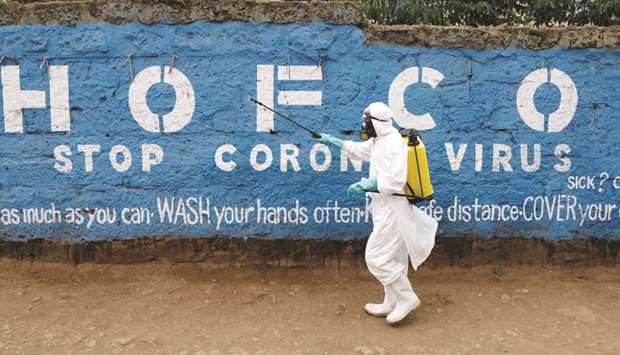The bonds of struggling African nations are among the best emerging-market performers in May, potentially easing their need for debt forgiveness from foreign creditors.
Dollar bonds sold by Angola, Zambia, Gabon and Ghana are on track to hand investors double-digit returns this month as a wave of unprecedented stimulus in developed markets revives appetite for riskier assets. More clarity on the economic impact of the coronavirus pandemic has cut the average yield for Sub-Saharan borrowers by 350 basis points since March.
The rally suggests some countries that are eligible for debt relief under a 73-nation plan may be able to keep market access, even if borrowing costs remain elevated.
The improving market backdrop presents a dilemma for governments as they ponder the best strategy to fund widening budget gaps.
“Countries will have access to capital markets already in the coming months if they need it,” said Simon Quijano-Evans, the chief economist at Gemcorp Capital in London, which owns Sub-Saharan debt. “It would thus be preferable to avoid being in the midst of any debt reprofiling scenarios that could risk rating downgrades.”
The market recovery may accentuate the concerns of private creditors representing $9tn in assets, who last week formed a group to talk with African governments over easing obligations on commercial credit.
The negotiations are part of a broader initiative to help low-income countries fight the pandemic. The Paris Club of official creditors has agreed to suspend payments on debt until the end of the year. The International Monetary Fund and World Bank have ramped up emergency lending, with Kenya set to receive $1bn and Uganda eyeing a $300mn loan.
With billions of dollars of debt obligations due this year, and rising maturities ahead, any relief initiative will have to guarantee continued access to foreign funding in the medium term.
“These countries took a long time to establish themselves in the capital markets,” said Kevin Daly, a senior investment manager at Aberdeen Asset Management, who has discussed debt relief with African finance ministers on behalf of the creditor group. “You won’t be able to access the market if you defer coupon payments. You will lose market access for an unknown period of time.”
Still, borrowing costs may be too high for countries to rely on new funding only. The decline in Sub-Saharan bond yields pales in comparison with a 6 percentage-point average for all emerging markets. Several nations, including Angola, Cameroon, Zambia and Mozambique trade at distressed levels, according to data compiled by Bloomberg.
For some investors the risk-reward calculus still doesn’t offer an attractive entry point.
“There are too many uncertainties now,” said Richard Segal, a senior analyst at Manulife Investment Management in London, which has $625bn of assets. There’s still not enough clarity on “whether debt relief will be imposed, the state of the global economy and travel, oil prices, the healthcare costs of the virus on the sub-Saharan Africa, flows into or out of the asset class,” he said.

A health worker sprays disinfectants in an effort to stop the spread of the coronavirus disease (Covid-19) in the Kibera slums of Nairobi, Kenya on Friday.


